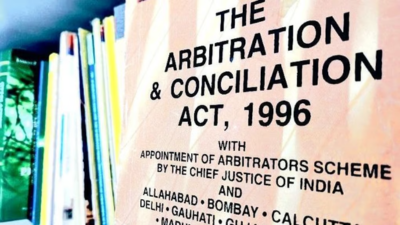The Supreme Court ruled on Thursday that applications to extend the deadline for passing an arbitral award can be filed even after the eighteen-month time limit set by Section 29A of the Arbitration and Conciliation Act [Rohan Builders India Private Limited v. Berger Paints India Limited].
Section 29A mandates that arbitral awards should be delivered within twelve months of completing pleadings, extendable by six months with party consent, for a total of eighteen months. Under Section 29A(4), if an award is not made within this period, the arbitral mandate is automatically terminated unless a court orders an extension.
A bench of Justices Sanjiv Khanna and R Mahadevan clarified that the termination of an arbitral mandate after the eighteen-month period is not absolute. The Court held that an extension application can be filed even after this period expires.
“We hold that an application to extend the time for passing an arbitral award under Section 29A(4) and Section 29A(5) is valid even after the twelve-month or extended six-month period has passed. The court will consider such applications based on ‘sufficient cause,'” the Court stated.
The Court further emphasized that the term “terminate” in Section 29A(4) should not be interpreted restrictively. It recognized that while Section 29A aims to ensure timely completion of arbitration, courts retain flexibility to extend deadlines when justified. Moreover, the Court warned against setting strict limitation periods, noting that the legislature intentionally refrained from imposing one.
The ruling came in response to appeals questioning whether extension applications could be filed after the eighteen-month limit. The Supreme Court noted that several High Courts had previously offered conflicting interpretations on this issue. Some had ruled that such applications must be filed within the original timeframe, but the Supreme Court rejected this narrow view, stating it could lead to impractical outcomes.
The Court highlighted safeguards to prevent abuse of the process, ensuring that extensions are granted only for valid reasons and not automatically. It also underlined that judicial discretion serves as a deterrent against frivolous or vexatious applications.
The judgment concluded a batch of appeals where prominent legal representatives, including Senior Advocates Nakul Dewan, Gopal Jain, and Shyam Divan, appeared for various parties.

















